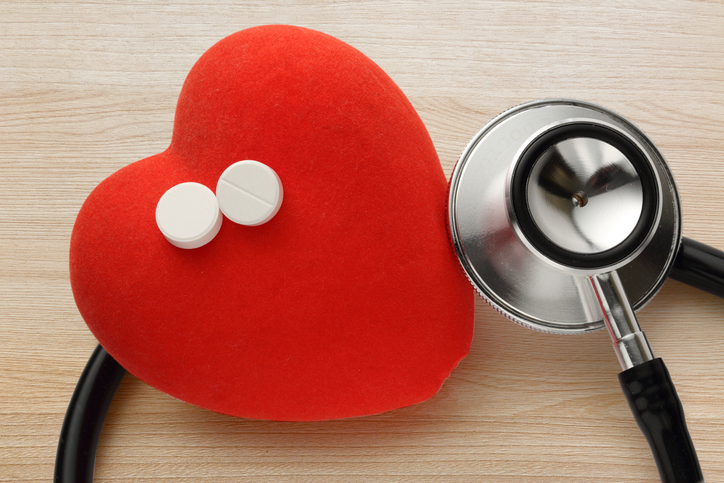 Millions of people take some kind of heart medicine. Some people need a variety of different medicines to strengthen heart function, lower cholesterol, prevent blood clots, or stabilize heart rhythms. These medicines can be life giving — and powerful. Even a small drop in your blood pressure reading can cut your risk of having a heart attack.
Millions of people take some kind of heart medicine. Some people need a variety of different medicines to strengthen heart function, lower cholesterol, prevent blood clots, or stabilize heart rhythms. These medicines can be life giving — and powerful. Even a small drop in your blood pressure reading can cut your risk of having a heart attack.
At the same time, taking these medicines the wrong way or stopping them without first consulting your healthcare provider could be dangerous, even fatal.
The American Heart Association (AHA) and the National Heart, Lung, and Blood Institute offer the following medication advice.
Keep a current list of all your medicines.
Keeping a list of your medicines will help you stay on top of what you need to take and when. It’s also important information to share with every healthcare provider you see to ensure your care is managed safely and appropriately.
Some people keep a list of their medicines on a computer so they can easily update it. You may also keep it on your smart phone. Record the name of the medicine, the dosage you take, and the medicine’s purpose — for example, “heart rhythm” or “blood pressure." Keep a copy of this list in your wallet or purse so you will always have it with you for doctors' appointments or in an emergency.
Make medicines part of your routine.
What’s easiest for you to remember: Taking your meds every evening before brushing your teeth? Every morning with breakfast? Just be sure to follow any medicine instructions. Some statins, for example, which are cholesterol-reducing medicines, often work better taken before bed, because the body tends to make more cholesterol at night. Many people find a pill box with days of the week divided by times of day very helpful, especially if they are taking a lot of medicine. Some heart medicines can be very dangerous if accidentally doubled or missed, a pill box can make keeping track a lot easier.
Talk with your doctor first.
Check with your healthcare provider or pharmacist before taking any new medicine, whether itis prescription, over-the-counter, dietary supplement, or an herbal preparation. Drug interactions can cause many, often serious, problems.
If you’re on the blood-thinner warfarin, for instance, taking a drug or alternative therapy that further thins your blood could put you at risk for a life-threatening stroke or internal bleeding.
Over-the-counter drugs can be particularly hazardous:
- Decongestants that contain ephedrine can elevate your blood pressure and cause heart rhythm abnormalities.Migraine headache medicines can elevate blood pressure and even bring on a heart attack in people with advanced heart disease.Weight-loss medicines may contain ephedrine, a drug that can increase blood pressure and heart rate and cause heart rhythm problems.
Stick with a single pharmacy.
Many pharmacists rely on a sophisticated computer system that does a cross-check of all your medicines with each new prescription and automatically warns of potential adverse drug interactions. If you purchase a drug elsewhere, however, it won’t show up in the system.
Don’t stop taking a medicine.
Never stop taking a medicine without your doctor’s OK. If price is an issue, ask your healthcare provider if there’s a lower-cost alternative.
If you abruptly stop taking beta-blockers, your heart rate and blood pressure can temporarily soar from a withdrawal effect. If you discontinue a medicine that stabilizes your heart rhythm or prevents blood clots, you could suffer a heart attack.
For the same reasons, never delay refilling a prescription.
Have the medical tests your doctor recommends.
Regular blood pressure checks can let you know if your medicine needs adjusting.
Be alert to side effects.
If you think you are having a side effect, call your healthcare provider right away. Your doctor may be able to prescribe another medicine that can do just as good a job without the side effect. If you have signs of a severe allergic reaction — for example, you have trouble breathing, break out in a rash, start to swell up, or have a lot of itching — call 911.
Above all, don’t let worries over the risks of these drugs keep you from taking them.
Heart medicine resources
- A printable medicine chart to help you keep track of your medications is available at the AHA website. Visit and search for “medication chart.”A wide variety of resources on the wise use of prescription and other medications is available at the National Council on Patient Information and Education's website. Visit and click on “For Medicine Users,” then “Tools for Consumers.”








